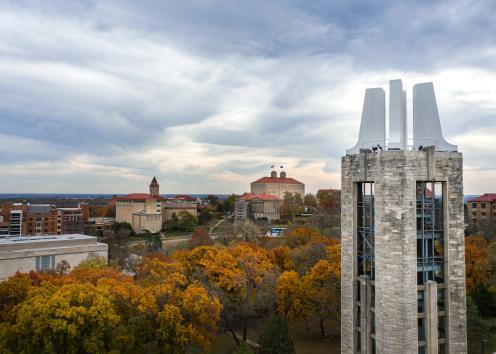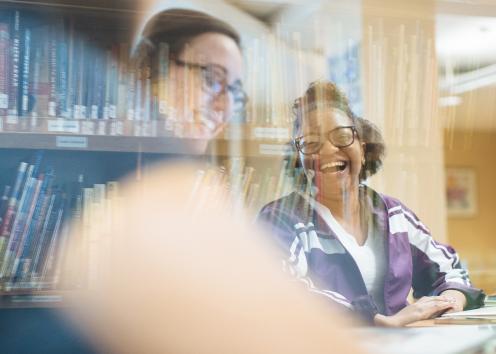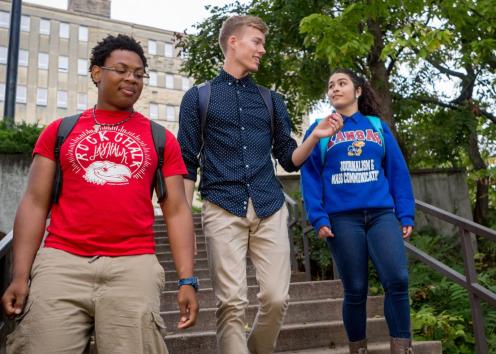Honors Courses Fall 2026
ENGL 105: Honors Introduction to English - Literature of the Body
Instructor: Colleen Morrissey
26359 | MWF 11:00-11:50 AM | Wescoe 4019
26360 | MWF 12:00-12:50 PM | Wescoe 4019
In this course, we will examine the literature of the body—how the written word has reflected and constructed our concepts of what it means to sense, suffer, live, and die as beings of flesh. Through literature, we will trace the ways in which the body’s shapes, desires, and abilities are represented as signs of personal worth, attractiveness, character, virtue, and even one’s humanity or inhumanity. Through our study, students will build their critical thinking, reading, research, and writing skills, learning to uncover the ways that literature, culture, and history co-define each other. Most importantly, students will explore how the written word—both others’ and their own—is a powerful force for creating and capturing the most intimate human realities. Class meetings will emphasize discussion while coursework will emphasize critical writing. Texts will include fiction, nonfiction, and poetry from writers such as the Brothers Grimm, Mary Shelley, Lord Byron, and Helen Oyeyemi.

ENGL 105: Honors Introduction to English - Telling & Retelling
Instructor: Doug Crawford-Parker
26269 | TuTh 11:00-12:15 PM | Wescoe 4021
What might move a writer to answer, retell, or even rewrite a previous work? How do new literary works relate to older ones? This class will examine such questions by examining a select group of instances where authors rewrite, extend, or answer the work of an earlier writer. How do writers relate to writers who have come before them? Why might a writer “rewrite” the work of an earlier writer? In this class we will explore multiple instances of writers responding to the works of earlier writers, beginning by reading two essay pairs written decades apart but which share the exact same title. We will then focus on four novels that tell and retell their stories. As we work our way through these texts, reading them closely and discussing them analytically, we will also engage how to write the kind of argumentative, analytical assignments that are often central in college classes. Coursework includes three papers, a final project where students will have their own opportunity to do a rewrite, weekly posts in Microsoft Teams, and other regular short writing exercises in and out of class.

ENGL 105: Honors Introduction to English - World Fair
Instructor: Sonya Lancaster
26358 | TuTh 2:00-3:15 PM | Wescoe 4019
The 1893 Chicago World’s Fair, known as the Columbian Exposition, was attended by more than 27 million people during its six-month run. It represents a pivotal moment in the history of the nation, influencing many areas of American life: architecture, sanitation, The Arts, ideas about the West, marketing, race relations, women’s issues, and even electricity. The World’s Fair changed those who participated in it by celebrating consumption and technology., and we will consider the impact of these changes on the U. S. today. We will examine the tensions between those who wanted to represent the ideal city, and those who were ostracized from that city but created their own spaces as critiques of the Fair.
Writing Projects: There will be three writing projects in the class, and a collaborative final project: the first is an examination of a physical space at the fair through maps photographs, films and other materials from digital archives, using these to analyze the space rhetorically; the second project with be a synthesis of archival and newspaper primary sources and secondary sources from the library about controversies at the Fair to represent a controversy from three viewpoints: those who participate in exhibits or work at the Fair, those who have positions of authority at the Fair, and visitors to the fair. The third project will ask you to analyze an artifact or technology from the Fair and write about how it represents the experiences of the fairgoers and ideas about the US as a nation in the late 19th Century. The final project will be the creation collaborative zines to represent ways that the Fair resonates with people living today.
Readings: We will read Erik Larson’s Devil in the White City, both as an overview of the Fair and as an example of a historical non-fiction novel, and the other readings will be in digital archives, newspaper articles from 1893, travel memoirs, journals, petitions, speeches, and secondary sources. All of these will be provided on or accessed from Canvas.
Field trips: A highlight of teaching this class at the University of Kansas, is the ability to see first-hand materials from the Fair: we will go to the Natural History Museum to see the Panorama, which was the Kansas state exhibit for the Fair; we will go to the Spencer Museum of Art to look at artifacts from Sarah Casey Thayer’s Collection, which she purchased at the Fair; and we will go to the Spencer Research library to examine materials in their collection from the Fair, which includes recipe books, guide books, and other materials.

ENGL 105: Honors Introduction to English - Food & Writing
Instructor: Mary Jo Reiff
26361 | MW 2:00-3:15 PM | Wescoe 4075
In this course, we will use the lens of food and food studies to practice critical thinking, reading, and writing skills and to meet the KU Core34 Goals of exploring your own experiences and utilizing research to communicate ideas in writing and across varied contexts and mediums. We will begin with overviews of how the metaphor of “cooking” is used to discuss writing processes, drawing comparisons between cooking and writing as generative action and interaction and as activities that are both active and reflective. We will then explore the connection between food, memory, and cultural identity as we read and write food memoirs. Moving from personal to academic writing, we will research and explore food-related issues relevant to our disciplines, with a focus on how food serves as a lens for exploring social/cultural issues (such as the environment/sustainability, health/nutrition, human-animal relationships, labor conditions, food insecurity, food safety, etc.). For the final project, we will turn to the history of cookbooks (with a visit to Spencer Research Library to examine cookbooks in the archives) and will explore the rhetoric of cookbooks and the genre of recipes as we create multimodal projects that contribute to a final collaborative class project: a digital cookbook/website/blog.

ENGL 205: Freshman-Sophomore Honors Proseminar - Literature and the Universe
Instructor: Zay Dale
26363 | MW 2:00-3:15 PM | Wescoe 4037
“Do I dare disturb the universe?” This literature course begins with this question posed by T.S. Eliot. How does literature disturb the universe? What does it mean for literature to attempt to grasp at the cosmos that surrounds us? How does culture impact our understanding of the universe? In our course, we will examine literature that discusses the universe in a wide variety of ways. We will follow a wide range of various authors, texts, and traditions. From Olaudah Equiano’s slave narrative to Albert Einstein’s annus mirabilis to W.E.B. Du Bois’s “The Comet” to Christopher Nolan’s Interstellar to Tracy K. Smith’s Life on Mars, to others, this course examines prose, poetry, drama, theory, and media to work towards understanding the relationship between literature and the universe. The texts we will examine grapple and engage with the cosmos in exciting and complicated ways–sometimes attuned to fear and sometimes to hope. This course maintains the argument that you cannot understand the universe without understanding its relationship to literature and the arts. Importantly, this course will include visits to the Stargazing, Telescope Observing and Planetarium Shows hosted by our Physics & Astronomy department. This course will also include visits to the Spencer Museum of Art and the Kenneth Spencer Research Library where we will examine art and literature in conversation with the universe. Our main writing assignments will include two close reading essays, a podcast assignment, and a final research essay. No scientific background is required.

ENGL 598: Honors Proseminar- The Gothic
Instructor: Ann Rowland
26390 | TuTh 2:00-3:15 PM | Wescoe 4020













